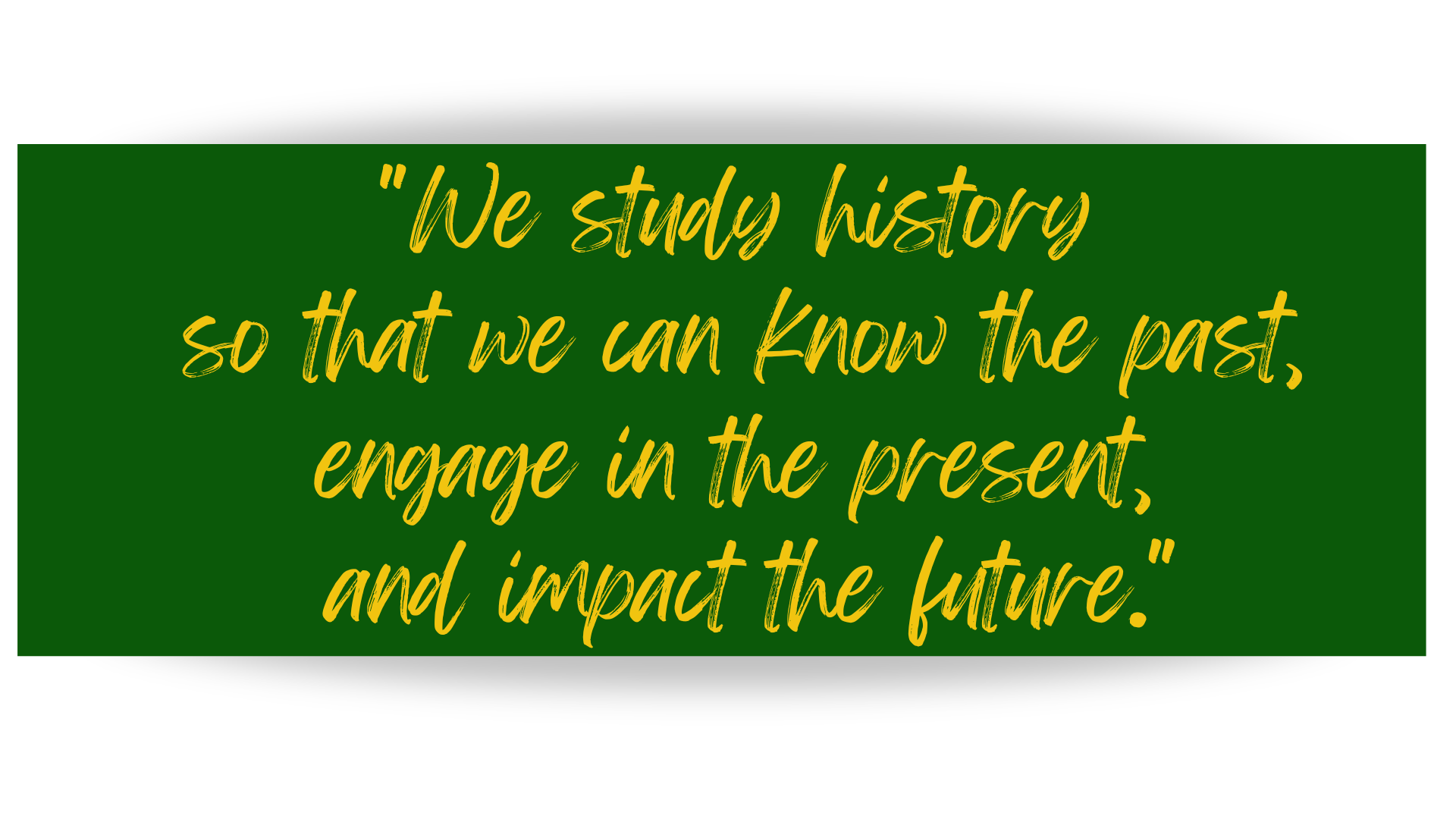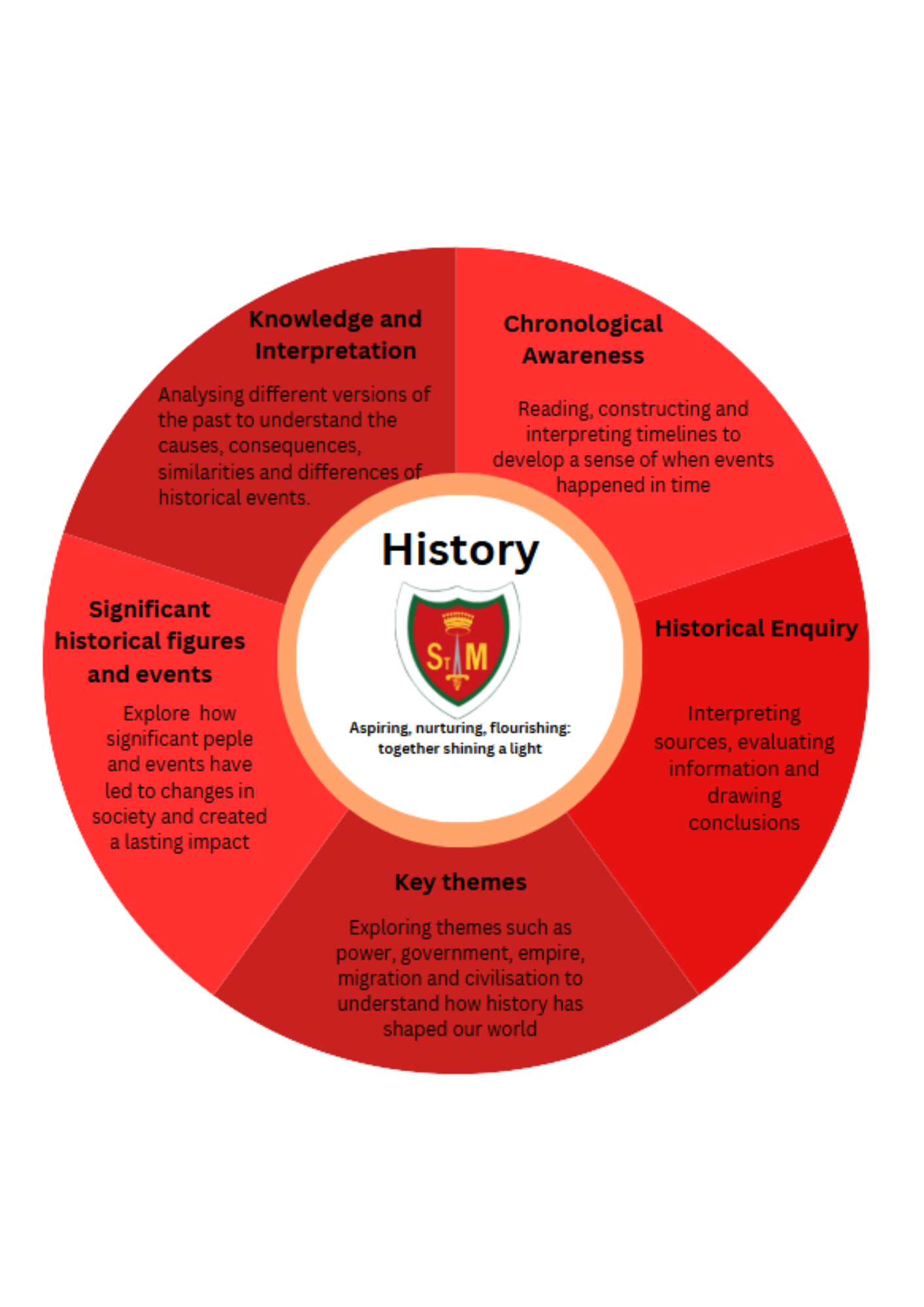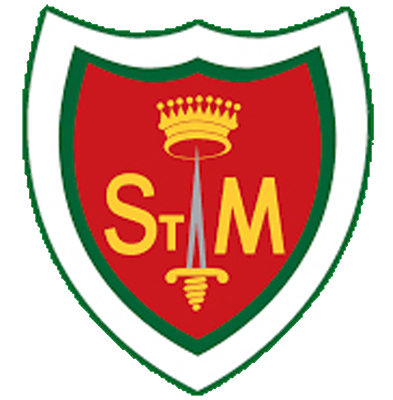History

Intent
At St Mary’s, our history curriculum is designed to spark curiosity, deepen children’s understanding of the past, and help them see how it connects to the world today. Through a rich and engaging programme that covers local, British, and world history, children learn about significant events, people, and periods. Alongside key knowledge, they develop important skills such as asking questions, thinking critically, placing events in chronological order, and understanding the experiences of people from different times. Our aim is for children to leave St Mary’s with a strong sense of identity, an appreciation for diversity, and the tools to think like young historians.

Implemenation
History learning begins in the Early Years, where children explore their own lives and family history. In Key Stage One, pupils build on this by looking at changes over time, including the history of toys, flight and space travel, famous explorers, and events like the Great Fire of London. Visits to places such as the Royal Maritime Museum and the Tower of London, and workshops like Toys Through Time help bring the past to life.
In Key Stage Two, children follow Britain’s history chronologically, alongside studies of ancient civilisations such as Egypt, Rome, and Greece. Topics explore big ideas like empire, migration, change, and legacy. Learning is enriched through trips to places like the Canal Centre, Celtic Harmony, and St Albans, as well as museum visits and in-school workshops. Many of our history units are guided by enquiry questions, helping to focus and deepen each learning journey.
Impact
By the end of their time at St Mary’s, children develop a strong understanding of the past and how it has shaped the present. They are confident in using historical vocabulary, asking thoughtful questions, and using evidence to support their thinking. They can compare life across different periods and demonstrate empathy when learning about people from the past. Our pupils leave us equipped with the knowledge, curiosity, and critical thinking skills they need to continue their historical learning in secondary school and beyond.
